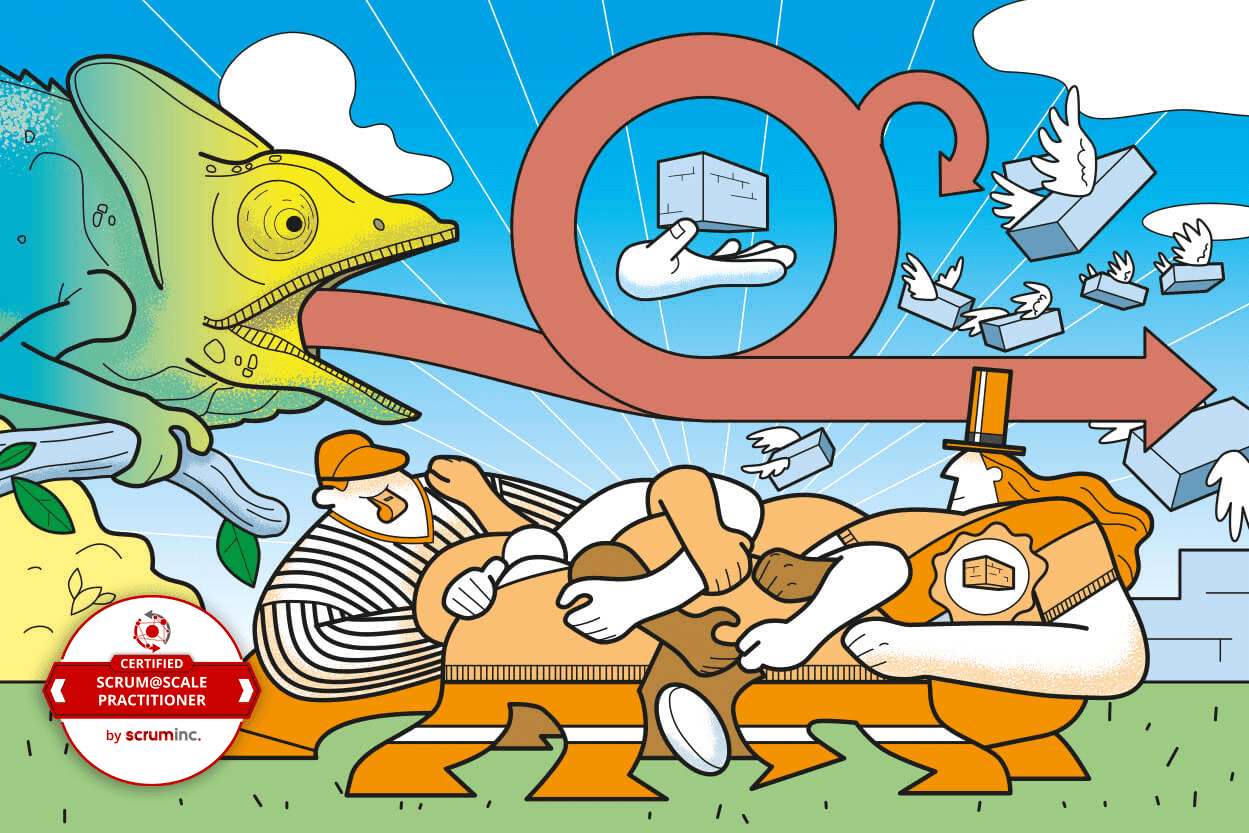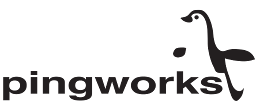Certified Scrum@Scale™ Practitioner

2. April 9:00 —
3. April 17:00 CEST

Descale first!
The Agile Organization
To some it might come as a shock, but the journey towards more agility is one that will never end. Scrum@Scale is there to support you in continuously asking yourself the right questions, such that you can decide which step to take next.
The First Scaling Rule: Don't Do It!
One of the core principles of Scrum@Scale is only to scale what really needs scaling. Don't scale just because scaling is hip and sounds like something everybody should do. We call this principle Minimal Viable Bureaucracy (MVB).
In this course you will learn how to stick to an MVB and what else you need to do to not end up with yet another reorganization with very low chances of improvement let alone success.
After the course and passed exam you will receive the “Scrum@Scale Practitioner” certificate signed by Jeff Sutherland.
During the course the trainer will tell lots of stories out of his own experience with clients all over the world. We will also do quite a few exercises helping to understand the theory behind Scrum@Scale.
But it is not only about the trainers narratives. There will be lots of opportunities for the participants to share their own challenges, their own successes and their own defeats. We encourage everybody to tell their stories. There is so much we all can learn from each other and these stories are the gateway. They inspire and trigger new thoughts. We also really connect through these stories and participants can thus expand their qualitative network which most likely will last long after the course is over.
Content
What is Scrum@Scale, and how does it help companies to become more agile?
The 12 scaling components / focal points in detail
Scaling the roles: Product Owner and Scrum Master
Scaling the events: Content and execution of scaled planning, dailies, reviews, and retrospectives.
Scaling the artefacts: Integrated potentially shippable product increment, vision, portfolio planning, etc.
Developing a heat map for each individual in the course for the purpose of having being able to kickstart or reanimate the agile transition in the own organization with more clarity.
Information About the Exam
After the course the participant has 30 days to do the online open book single choice exam. The test consists of 30 questions of which at least 23 have to be answered correctly. The fee is included in the course. Further information about the exam will be provided during the course. Contact
For further questions about the course, its contents, etc. contact
- Mirko Kleiner
- +41 79 6011990
- mirko@flowdays.net
Partner
This course is organized in collaboration with our partner.
Further Information
Here are a few links with more information on Scrum@Scale:
Official Scrum@Scale Website with loads of information, link to the Scrum@Scale Guide, and much more.
Henrik Kniberg presents Spotify as a Scrum@Scale case study [2 min. YouTube video]
Renee Tsielepi explains Scrum@Scale in a nutshell [15 min. YouTube video]
Joe Justice demonstrates how a huge organization used Scrum@Scale to improve immensely [12 min. YouTube video]
Jeff Sutherland explains Scrum@Scale in just over a minute [1 min. YouTube video]
Klaus Bucka-Lassen presents a Scrum@Scale case study from Canada. This case study will also be presented and used during the course [7 min. YouTube video]
Mirko Kleiner shows how to kickstart a self-learning organization with Scrum@Scale [8 min. YouTube video]
This course is targeted at participants from anywhere between Central Europe, Asia, and Australia. Therefore, the prices are quoted in EUR. 7.7% of VAT/MWST will be added for participants from Switzerland.
2. April 9:00 —
3. April 17:00 CEST



